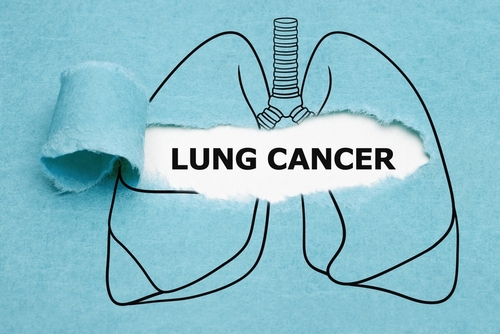
There is an unmet need for postsurgical therapeutic options for patients with early-stage NSCLC. Since PARP inhibitors have shown efficacy in patients with cancer who harbor germline and/or somatic BRCA1/BRCA2 mutations and homologous recombination deficiency (HRD), assessing HRD status in patients with early-stage NSCLC may provide a use for PARP inhibitors in an adjuvant setting. Results of a study examining the association between HRD status and postsurgical therapeutic options in early-stage NSCLC were presented at the ESMO Congress 2023.
The researchers analyzed tumor specimens and peripheral blood samples for somatic and germline mutations with a customized panel of 58 genes and assessed HRD status and the effect of PARP inhibition on tumor growth among 85 patients (59 men and 26 women) with operable NSCLC.
Results showed that six of the 85 patients carried germline mutations in the BRCA1 (n=1), BRCA2 (n=1), ATM (n=3), and PALB2 (n=1) genes. Pathogenic somatic mutations were detected in the BRCA1 (n=8), BRCA2 (n=9), ATM (n=8), PALB2 (n=3), CHEK1 (n=3), CHEK2 (n=6), RAD50 (n=5), and TP53 (n=49) genes. Based on genomic scar score, 25 patients (29.4%) were characterized as HRD, and at least one somatic HRR-mutated gene was observed in 15 (57.7%) of them (BRCA1 [n=4], BRCA2 [n=4], ATM [n=3], PALB2 [n=2], and CHEK2 [n=1]). Preliminary functional experiments in homologous recombination proficient (HRP; n=5) and HRD (n=4) PDX and organoids (n=3 and n=3 for HRD and HRP, respectively) indicated that HRD tumors present a low RAD51 foci count (P=.03 after damage induction) and favorable response to olaparib and cis-diamminedichloroplatinum (II) chemotherapy.
Homologous recombination may be deficient in a substantial proportion of patients with early-stage NSCLC, the researchers concluded, supporting the potential use of PARP inhibition in patients with HRD in the adjuvant or maintenance settings.
Source: Klinakis A, Christopoulou G, Voutsina A, et al. HRD status of patients with early stage non-small cell lung cancer. Abstract of a poster presented at the ESMO Congress 2023; October 20-24, 2023; Madrid, Spain.







 © 2025 Mashup Media, LLC, a Formedics Property. All Rights Reserved.
© 2025 Mashup Media, LLC, a Formedics Property. All Rights Reserved.